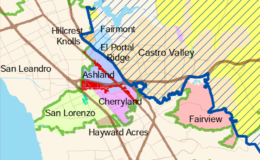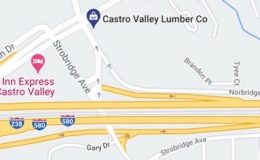I fully agree that local government representation is so important for Castro Valley.
Castro Valley Governance Issues to be Addressed at EALI
- By : Michael Kusiak
- Category : Governance, Headline Story, Local Control
- Tags: EALI, eali governance, eali working group
It’s not too late to be part of the EALI Process
Check out the agenda for the Eden Area Livability Initiative (EALI) governance meeting tonight (Thursday, May 8, 2014) at 6:30 PM at the Castro Valley Library, and join me and others from Castro Valley Matters in participating in this meeting.
It was through EALI that I got to know the folks from Castro Valley who helped start Castro Valley Matters. So, in a way you can thank Supervisor Miley for being the catalyst for Castro Valley Matters.
Becoming a Castro Valley Governance Wonk
About two years ago, I met with Alameda County Supervisor Nate Miley to ask him to make our appointed Municipal Advisory Council (MAC) an elected body. It seems like basic American democracy and apple pie to me that a community of 63,000 should have an elected forum to tackle basic governance issues, even if its powers are “just advisory.”
- California Government Code Section 31010 states “The resolution establishing any such municipal advisory council shall provide for […] The qualifications, number, and method of selection of its members, whether by election or appointment.“
- Currently, per the Board of Supervisors resolution that created it, the Castro Valley MAC is appointed. (Here’s a link to current CV MAC appointees).
Supervisor Miley told me to promote my idea of an elected MAC at a process he was restarting called the Eden Area Livability Initiative (EALI).
For about a year, I along with residents from the Alameda County unincorporated communities of San Lorenzo, Cherryland, Ashland, Fairview, and Castro Valley (the “Eden Area”) attended EALI meetings, and I got my opportunity to advocate for an elected MAC.
There was clear consensus that how we’re governed in unincorporated communities isn’t working. We just had a really tough time coming to a consensus on about the right solutions.
After months of EALI meetings, I found myself in front of a crowded hall at the Eden United Church of Christ on a Saturday morning last November presenting about some of the ideas that the working group had on improving governance in our communities. When the votes were tallied at this EALI “Community Charrette”, the winning goal for our unincorporated communities was “Enhance local self-governance,” a noble, yet somewhat ambiguous goal to tackle.
In the EALI implementation phase over the next year or so, the ideas we came up with last year in our working group will be vetted and could be implemented. It’s important that we get community participation in these meetings since the outcomes will very likely impact how we get local government in Castro Valley and the other unincorporated communities for years to come.
Here’s a link to some of the governance scenarios that we developed in the Governance Working Group last year, some of which include:
- An elected Castro Valley MAC
- A Castro Valley MAC where its members would also sit as a Castro Valley Board of Zoning Adjustments
- An advocate for the unincorporated communities based in the County Administrator’s office
- An Eden Area MAC
So what’s the problem with governance in California’s unincorporated communities?
A California “unincorporated” community is one that gets is local government from a county, not an independent city. Particularly in urbanized counties with densely populated communities where most of the county is incorporated (think Alameda County), taking care of the needs an unincorporated community can be tough.
I believe that the law that created MACs back in 1971 is the first and last attempt to bring greater local governance to unincorporated communities. Someone even wrote about this promise of more local control, despite lack of incorporation, in a 1977 report titled “Municipal Advisory Councils: An Experiment in Community Participation.”
A March/April 2000 article from California County, a former publication of the California State Association of Counties, nicely outlines the challenges that communities like Castro Valley (we’re even mentioned in the article) face in getting local governance. As the author points out, “unincorporated areas pose special services delivery and governance problems for California county governments.”
And it’s easy to ignore an unincorporated community’s concerns since counties predominately focus on delivering State of California-mandated social welfare and health services, not the local government services that you would normally associate with a city hall such as planning and building sidewalks. Just take a look at the Alameda County budget, and you’ll see this dynamic play out.


